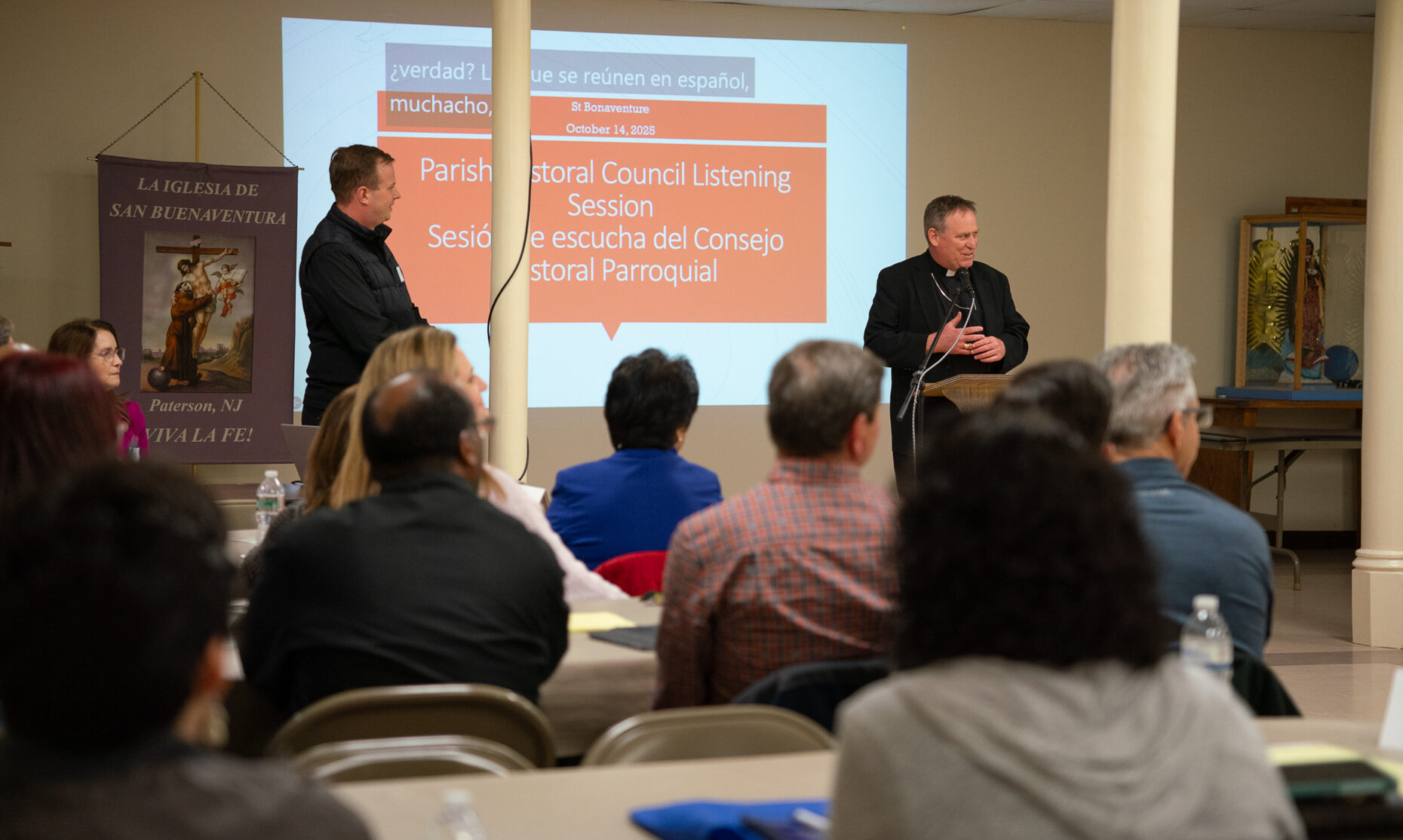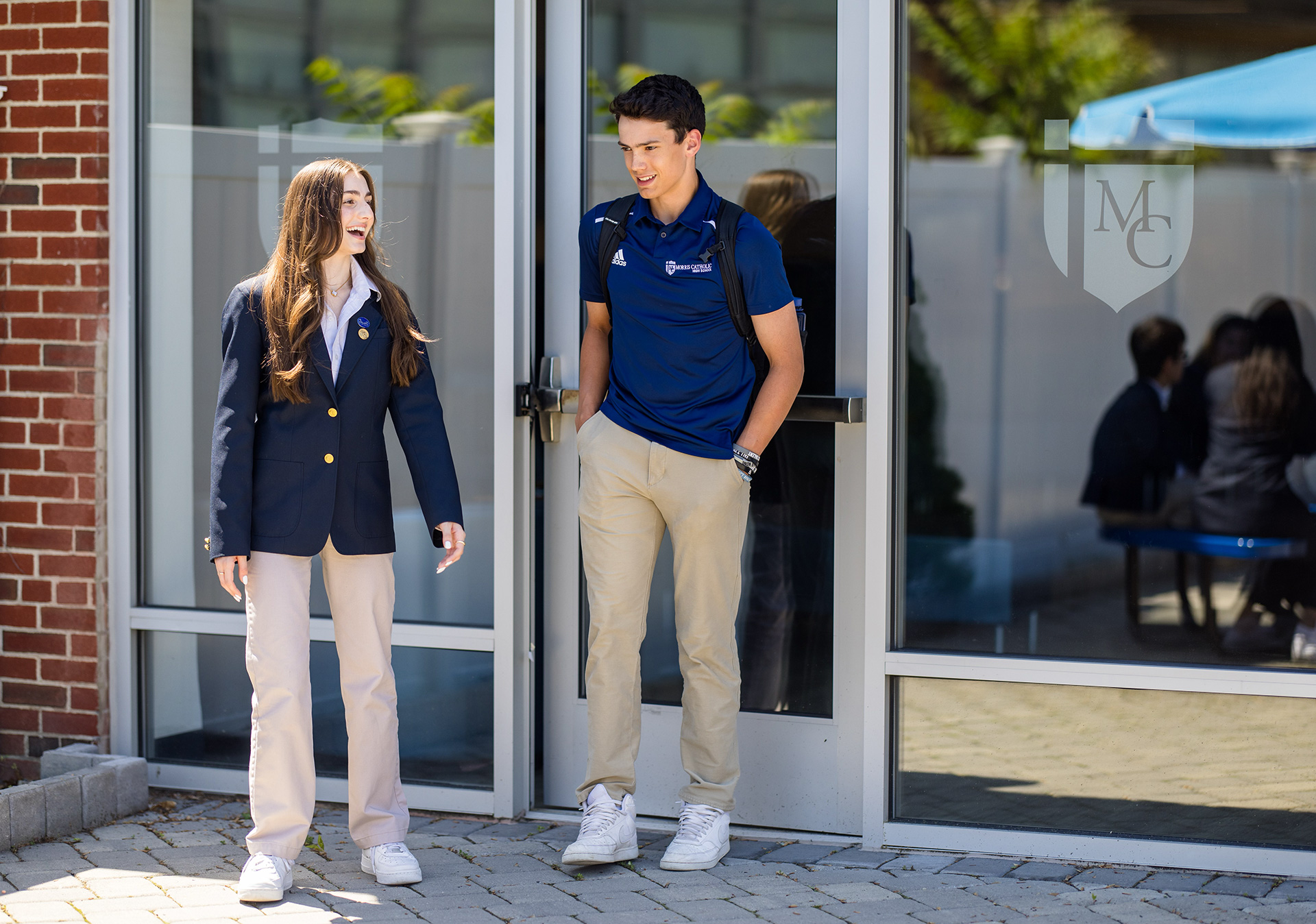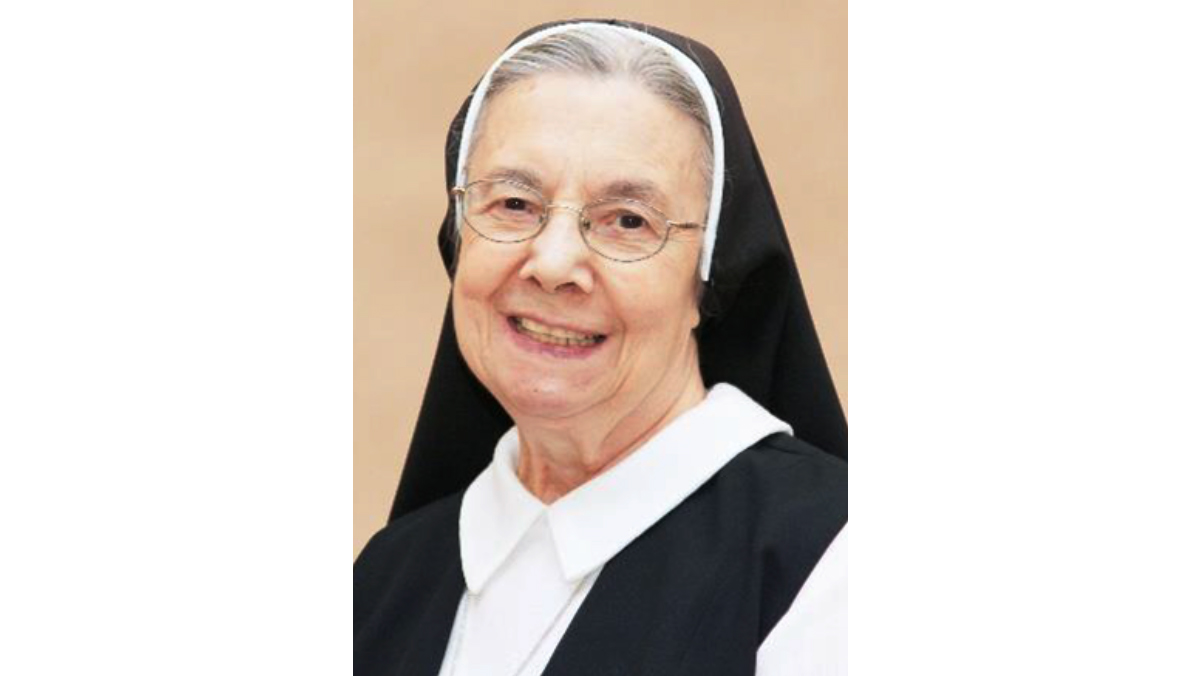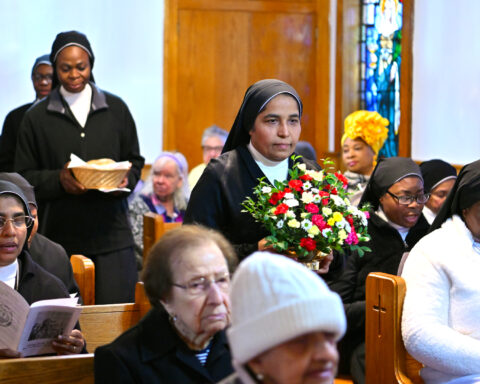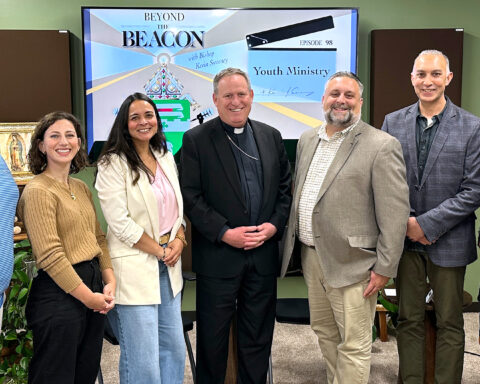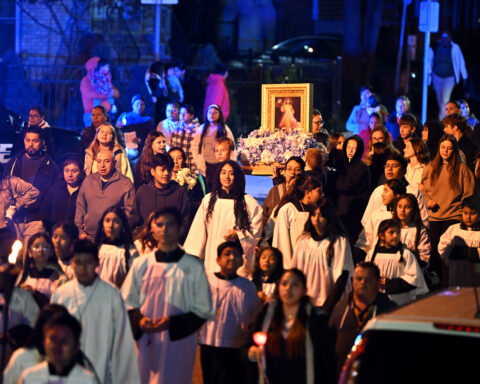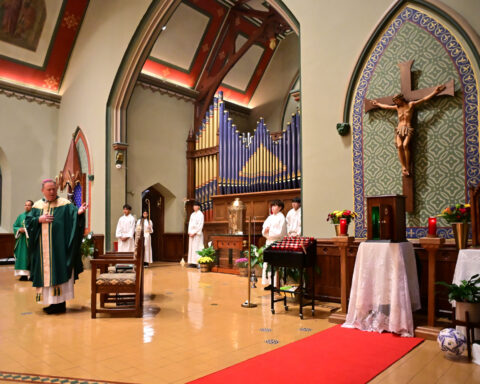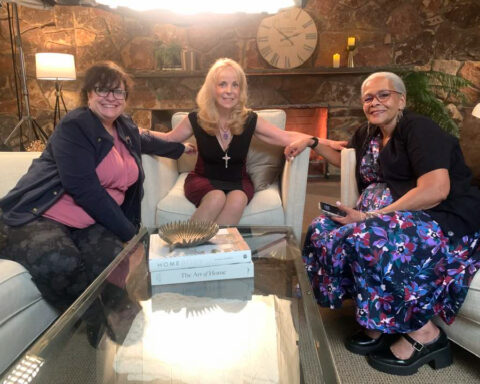Bishop Kevin J. Sweeney is moving into action with his diocesan priority of revitalizing Parish Pastoral Councils (PPCs). He initiated this renewal by convening two PPC Listening Sessions — one at Notre Dame of Mount Carmel Parish in the Cedar Knolls neighborhood of Hanover Township, N.J., on Oct. 11 and another at St. Bonaventure Parish in Paterson, N.J., on Oct. 14.
“Pastors and parish leaders shared what’s working, what’s difficult, and where support is needed. The conversations were frank, hopeful, and practical,” said Father Alex Nevitt, administrator of St. Bonaventure, who is supporting the revitalization process as part of his role as the newly appointed Episcopal Delegate for Parish Leadership Development. “Today, a little more than 50 of the diocese’s 109 parishes report having councils — evidence of progress and of room to grow.”
The final document of the Universal Church’s recent Synod on Synodality gives the diocese’s work a timely prod: “A synodal Church is based upon the existence, efficiency, and effective vitality of these participatory bodies, not on the merely nominal existence of them.” The Universal Church is asking dioceses to make councils real, representative, and mission-oriented — not just names on paper, Father Nevitt said.
Click here to subscribe to our weekly newsletter.
At the PPC Listening Sessions, Bishop Sweeney thanked pastors and lay leaders for their dedication and commitment. He described this moment as the “implementation phase,” encouraging everyone to “keep up the good work.” The bishop also emphasized that the diocese’s role is to accompany parishes in concrete ways: sharing models, providing formation, and creating spaces where leaders can learn from one another.
Bishop Sweeney named Father Nevitt as Episcopal Delegate for Parish Leadership Development, to focus that support on parishes. The priest is coordinating resources and training so councils can listen, discern, plan, and act together for evangelization. During a session, he stated that the diocese is studying strong council models across the United States and tailoring approaches to each parish’s culture, rather than copying them wholesale. The point isn’t to “copy and paste others but to acknowledge we have a real lived cultural experience that’s unique here to our diocese,” Father Nevitt said.
The PPC Listening Sessions also highlighted some best practices that are already bearing fruit. At the Oct. 14 gathering, Franciscan Father John Aherne, pastor of St. Mary’s in Pompton Lakes, N.J., described forming a nine-member council to “share responsibility with the pastor,” representing the parish’s rich diversity. He calls it his “favorite meeting of the month” because it keeps the community focused on a shared vision rather than only short-term problems.
St. Mary’s began with a parish-wide survey. Then they responded with simple, family-friendly steps that build community: monthly coffee-and-donuts after Mass, a Christmas carol sing-along, and “Candy Bingo,” a one-time outdoor tailgating Mass for middle school families, as well as Children’s Liturgy of the Word at the 9 a.m. service. Mass — initiatives that are drawing young families.
“That kind of momentum is exactly what the Synod envisions when it urges local Churches to strengthen ‘participatory bodies’ and even create networks among parish and diocesan councils, so discernment, collaboration, and learning deepen at every level. When councils listen widely, pray seriously, and plan concretely, good ideas spread — and the culture shifts from maintenance to mission,” Father Nevitt said.
For the next step in the PPC revitalization process, Father Nevitt and his team will continue accompanying parishes in partnership with pastors and parish leaders. They will gather practical examples from around the diocese, offer formation in listening and spiritual discernment, and provide adaptable frameworks for agenda setting, goal tracking, and accountability.
For parishes with councils, the team will support assessing and refreshing membership, meeting rhythms, and mission focus. For parishes without councils, team members will coach leaders to start small by identifying a representative group, clarifying a purpose, setting prayerful norms, and tackling one or two local priorities. These priorities could include welcoming families more intentionally after Mass or launching simple fellowship opportunities that help people connect with one another.
The goal of PPC revitalization in the diocese is “simple and evangelical”: to help develop councils that “help pastors and people walk together, hear the Holy Spirit, and act for the good of the parish and the poor,” Father Nevitt said.
“With Bishop Sweeney’s leadership, a clear diocesan framework, and pastors and lay leaders eager to serve, our parishes have what they need to make PPCs more than structures. They can be schools of communion, places where listening becomes planning, and planning becomes mission,” Father Nevitt said.
